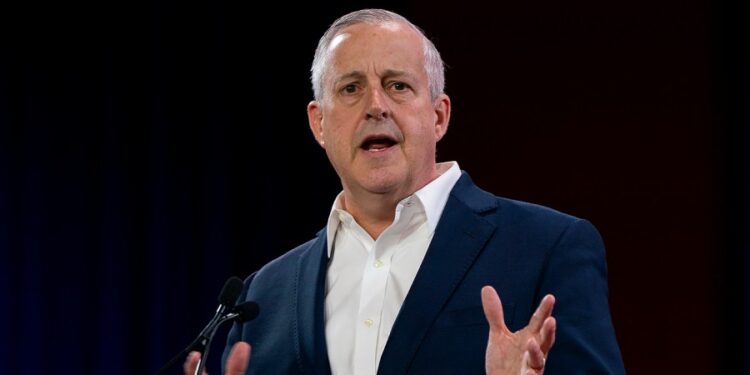
Republican National Committee (RNC) Co-Chair Michael Whatley said that former President Trump’s comments suggesting he could win California were a “little bit of a stretch.”
Trump, in an interview with television psychologist “Dr. Phil” McGraw released Wednesday, said that he could win California if Jesus Christ was counting ballots.
“If Jesus Christ came down and was the vote counter, I would win California, OK?” Trump said. “In other words, if we had an honest vote counter, a really honest vote counter — I do great with Hispanics, great, I mean at a level no Republican has ever done. But if we had an honest vote counter, I would win California.”
During an interview with Fox LA anchor Elex Michaelson that aired Friday, Whaley talked about the RNC’s need to have poll watchers in the state. Michaelson asked if people should trust that their votes will be counted “fairly.”
“Yeah, and that’s why we want to be here,” Whatley said. “And the thing about California law is it does allow anybody who is interested in serving in that capacity to go serve in that capacity, which I think is really good.”
Michaelson then asked Whatley what the former president meant with the Jesus remarks.
“Well, I think that he feels like California, there are a lot of Republicans and there are a lot of votes here,” Whatley said. “I think he was probably, you know, a little bit of a stretch.”
The anchor pointed out that Trump lost California to President Biden in 2020 by close to 5 million votes and then asked if Whatley had evidence that the former president won The Golden State.
Whatley, who was elected the committee’s co-chair in early March, said he did not.
“You know, I mean, the president can tell stories at any time, but that’s look, I think the key is that we want to make the point that it is very important for us to have election security protection in place, that we are going to protect the ballot,” Whatley added.
Michaelson then questioned if Trump’s messaging around voting is dangerous for the ex-president, since his supporters could believe the fraud claims and ultimately decide against voting at all.
“Right. That’s why we set this program up,” Whatley said. “That’s exactly the conversation that we are having.”







